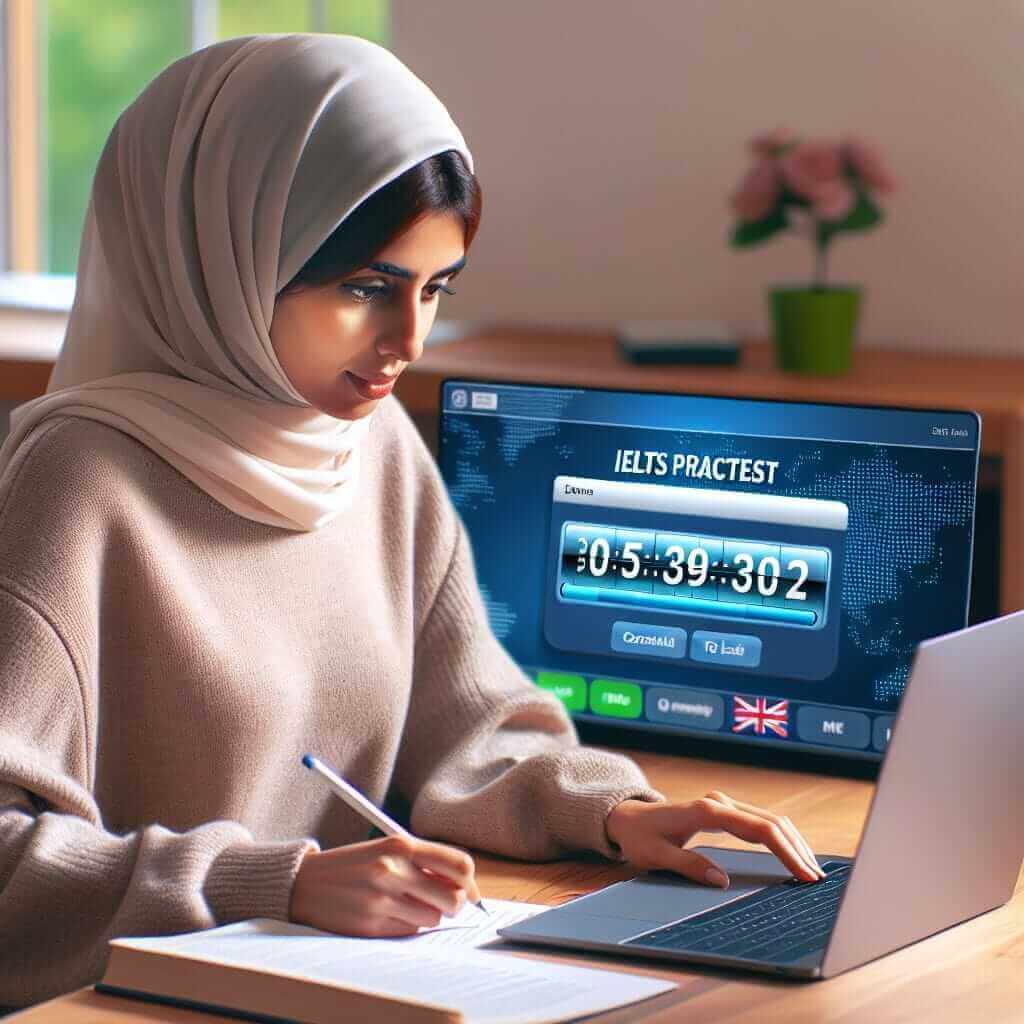For aspiring IELTS test-takers, finding the time and resources to prepare can feel daunting. The good news is, achieving your desired IELTS band score is entirely possible from the comfort of your own home. As an IELTS instructor with over 20 years of experience, I’ve witnessed countless students excel by implementing effective self-study strategies. This guide will provide you with a comprehensive roadmap to conquer the IELTS exam through focused home study.
Understanding the Importance of Home Study for IELTS
“How to study IELTS at home?” is a question I hear frequently. The truth is, self-study is the cornerstone of IELTS preparation. It allows you to:
- Learn at your own pace: Everyone absorbs information differently. Home study empowers you to tailor your learning speed to your unique needs.
- Target your weaknesses: Identify your strengths and areas for improvement through practice tests and focused exercises, honing in on specific skills.
- Maximize your time: No more commuting to classes! Study when and where it’s most convenient, transforming any spare moment into a learning opportunity.
Effective Strategies to Study IELTS at Home
1. Craft a Personalized Study Plan
- Set realistic goals: Determine your target band score and break down your preparation into manageable milestones.
- Create a schedule: Allocate specific time slots for each IELTS section, ensuring a balanced approach.
- Gather quality resources: Invest in reputable IELTS textbooks, online platforms (like IELTS.NET!), and practice materials.
2. Master the IELTS Exam Format
- Understand the test structure: Familiarize yourself with the different sections, question types, and time limits.
- Review band descriptors: These provide detailed criteria for each scoring band, helping you understand what examiners expect.
3. Develop Essential IELTS Skills
- Listening: Practice active listening with a variety of English accents through podcasts, news broadcasts, and IELTS listening tests.
- Reading: Improve your reading speed and comprehension by tackling academic articles, journals, and IELTS reading passages.
- Writing: Master different essay structures (e.g., argumentative, descriptive) and practice writing within time constraints.
- Speaking: Simulate the speaking test with a study partner or record yourself to identify areas for improvement in fluency and pronunciation.

4. Utilize Practice Tests Strategically
- Regularly take mock tests: Simulate exam conditions to build stamina and track your progress.
- Analyze your performance: Identify your strengths and weaknesses to guide your future study efforts.
Example: Analyzing an IELTS Speaking Cue Card
Topic: Describe a memorable journey you have taken.
- Brainstorm key points: Where did you go? Who were you with? What made it memorable?
- Structure your response: Use a clear introduction, body paragraphs with supporting details, and a conclusion.
- Practice using relevant vocabulary: Incorporate words related to travel, emotions, and experiences.
Top Tips for Successful Home Study
- Create a dedicated study space: Choose a quiet and organized area to minimize distractions.
- Take breaks: Regular short breaks help maintain focus and prevent burnout.
- Stay motivated: Celebrate your progress and remind yourself of your goals.
- Seek support: Join online forums or study groups to connect with fellow IELTS test-takers.
Conclusion
Preparing for IELTS at home is an achievable goal with the right approach. By following these strategies, staying disciplined, and leveraging available resources, you can gain the confidence and skills necessary to succeed. Remember, consistent effort and a strategic study plan are your keys to unlocking your target band score. Good luck!